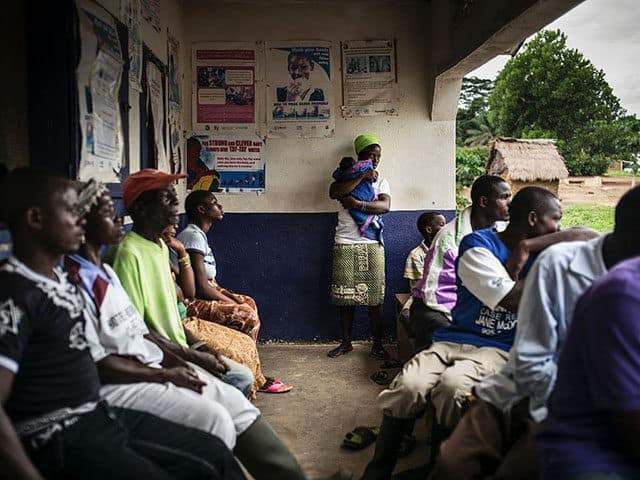Ebola Returns to Guinea, Origin of Largest-Ever Outbreak

Guinea declared a new outbreak of Ebola on Sunday in the southeastern rural community of Gouéké after at least three locals died from the virus in recent days.
Guinea’s national laboratory confirmed three new cases of the Ebola virus on February 14. The outbreak is Guinea’s first since a regional West African Ebola epidemic ended in 2016. The 2014-2016 outbreak is considered the largest in the documented history of the disease.
Health officials have traced the outbreak to the recent funeral of a nurse at a local health clinic who died on January 28.
“Following her burial, six people who attended the funeral reported Ebola-like symptoms and two of them have died, while the other four have been hospitalized,” the World Health Organization (W.H.O.) reported.
“It’s a huge concern to see the resurgence of Ebola in Guinea, a country which has already suffered so much from the disease,” W.H.O. Regional Director for Africa Matshidiso Moeti told reporters on Sunday.
The United Nations health body is currently aiding local health authorities in their efforts to “set up testing, contact-tracing and treatment structures,” Moeti added.
“Samples of the confirmed cases have been sent to the InstitutPasteur in Senegal for a full genome sequencing to identify the strain of the Ebola virus,” according to the W.H.O. report.
Drugs that help increase Ebola patients’ survival rates have been developed in West Africa since the region’s last outbreak. An Ebola vaccine was first trialed in Guinea over four months in 2015.
“The W.H.O. is on full alert and is in contact with the manufacturer [of a vaccine] to ensure the necessary doses are made available as quickly as possible to help fight back,” W.H.O.’s representative in Guinea, Alfred George Ki-Zerbo, told reporters on Sunday, according to Agence France-Presse.
Gouéké, the site of Guinea’s new Ebola outbreak, is located near the country’s border with Liberia. The last West African Ebola epidemic (2014-2016) started in Guinea and then spread via land borders to the neighboring countries of Sierra Leone and Liberia.
“Ebola Virus Disease (Ebola) is transmitted person-to-person through direct contact with blood, body fluids, or contaminated clothing and other personal items of symptomatic or deceased patients,” according to the U.S. Centers for Disease Control and Prevention (CDC).
Local cultural customs in West Africa dictate that funeral attendees help wash the body of the person who has died. Scientists have proven that this activity sparked previous outbreaks of the virus during the last West African Ebola epidemic. Health authorities in Sierra Leone detected “a sudden increase in the number of reported Ebola cases” in the rural district of Moyamba in the fall of 2014. A retrospective analysis of the cluster outbreak by the Sierra Leone Ministry of Health and Sanitation and the CDC revealed that “28 persons with confirmed Ebola had attended the funeral of a prominent pharmacist during September 5–7, 2014. Among the 28 attendees with Ebola, 21 (75 percent) reported touching the man’s corpse.”
Photo: MARCO LONGARI/AFP via Getty Images
Link: https://www.breitbart.com/africa/2021/02/15/ebola-returns-to-guinea-origin-of-largest-ever-outbreak/




